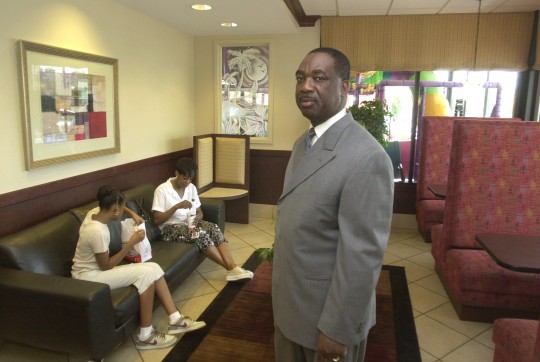Minority small business owners have the most to lose if the Obama administration’s labor regulators do away with the franchise business model, according to a new report.
The franchise model allows individuals to open their own businesses under larger corporate brands, such as McDonald's, in exchange for an annual fee. Those franchisees handle the day-to-day business operations with the national brand handling marketing and, in some cases, supply. An analysis of the nation’s franchisees conducted by Competitive Enterprise Institute, a free-market think tank, found that the business model has been a boon to immigrants and minority entrepreneurs.
"Minority-owned franchise businesses succeed at a rate 46 percent higher than that for minority-owned non-franchise businesses," the report says.
The federal government’s top labor arbiter, the National Labor Relations Board (NLRB), is expected to issue a ruling on the joint employer standard in the Browning-Ferris case. It could determine whether franchisors are joint employers and, therefore, liable for the actions of its franchisees.
NLRB General Counsel Richard Griffin, a former union lawyer, penned an amicus brief endorsing that argument and, in July 2014, brought charges against McDonald's for the business practices of small business owners under the company umbrella. The CEI report said that if the NLRB upholds Griffin’s opinion, it would harm the prospects of franchisees as corporations seek to avoid legal troubles.
"The franchise system benefits business startups, especially minority entrepreneurs seeking to start their own businesses. Holding corporate headquarters responsible for a franchisee’s workforce would make franchising much less attractive as a business model," the report says.
Matthew Haller, spokesman for the International Franchise Association, which represents the interests of about 800,000 U.S. franchising businesses, said that 20 percent of franchises are minority-owned, 30 percent higher the national average of small businesses. Those businesses play a vital role in minority communities, he said.
"Minority-owned franchisees are often one of the first to go invest in cities to help local officials redevelop areas hardest hit by decades of neglect," Haller said. "These franchisees are often first-time business owners from these very same communities who know and employ their neighbors in these franchises and support local charities."
Aloysius Hogan, CEI senior fellow and author of the report, said that the recent regulatory focus on franchising derives from a sustained union campaign against high profile franchising operations. Labor giant SEIU has spent millions to organize protests outside of McDonald's over the past few years as part of the Fight for 15 movement.
"Labor unions and trial lawyers want to target large corporate businesses, because it’s easier and more lucrative to unionize, pressure, and sue one big, single business than many smaller or separate businesses," Hogan said.
SEIU did not respond to request for comment.
Unions have long targeted franchise establishments for unionization, but the nature of the model makes it costly and difficult. Franchisees would have to unionize store by store under the current system. If the NLRB finds that corporate parents are joint employers, unions could bypass the small business owners and engage in top-down unionization.
"If this labor union attack on franchises succeeds, it’s American workers, consumers, and entrepreneurs who will be harmed as the higher cost of litigation, compliance costs, and union disputes lead to lower efficiency, less innovation, and higher prices," Hogan said. "Congress needs to step in and provide legislative relief to employers and workers who will suffer as a result of a bad ruling by the National Labor Relations Board."
